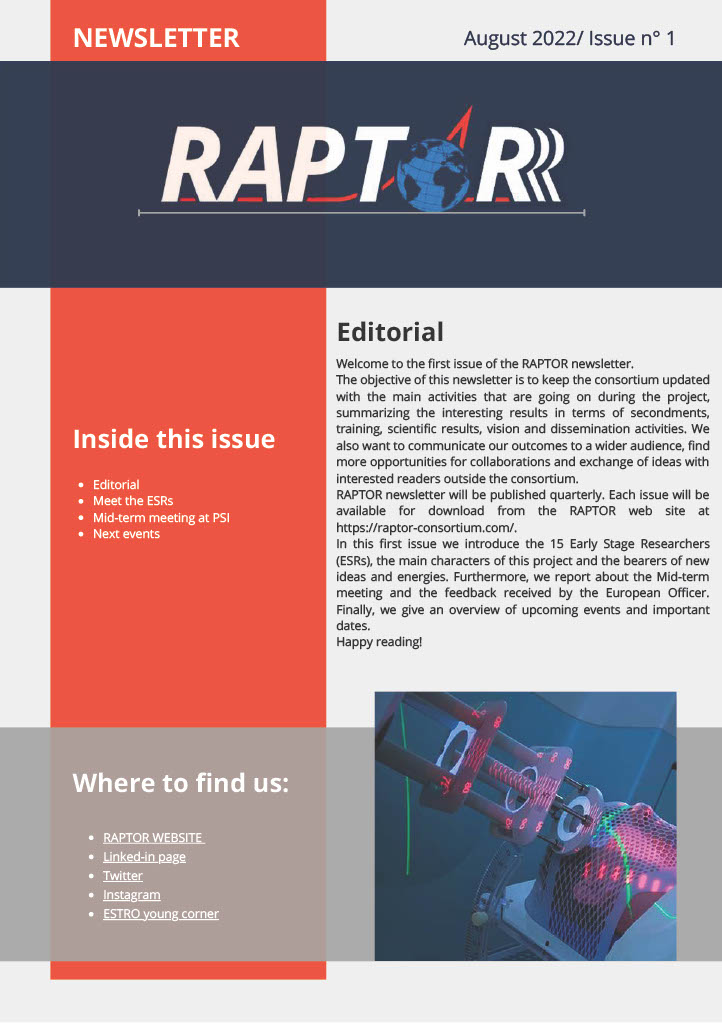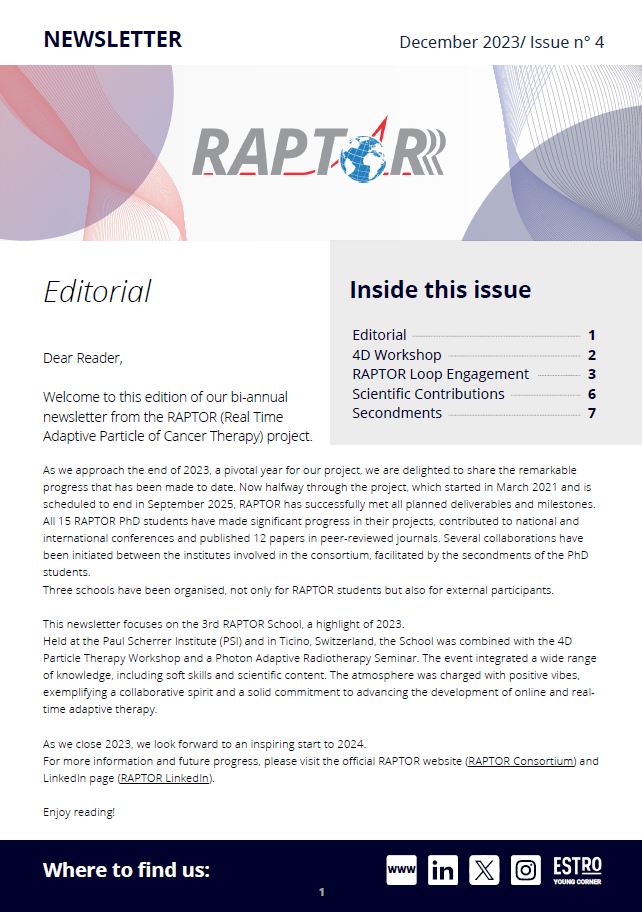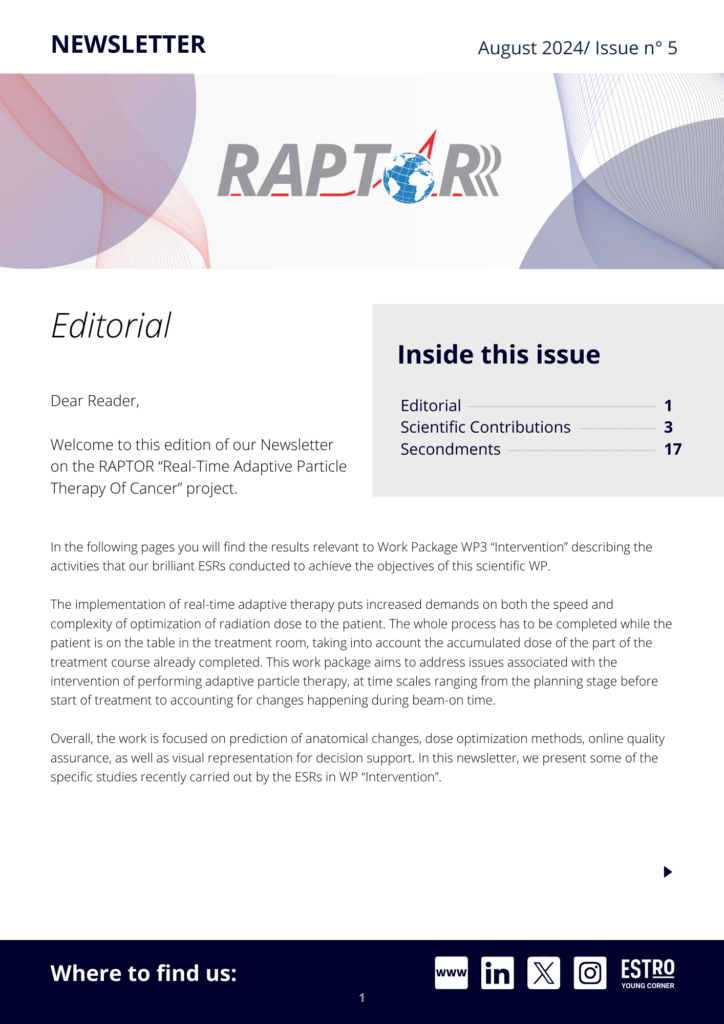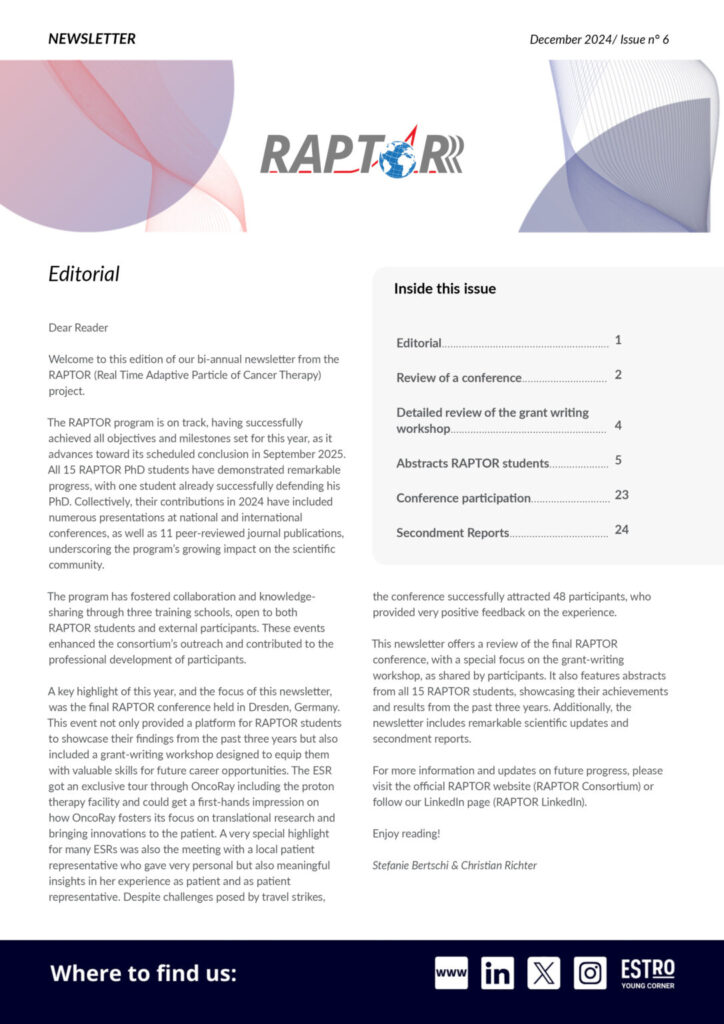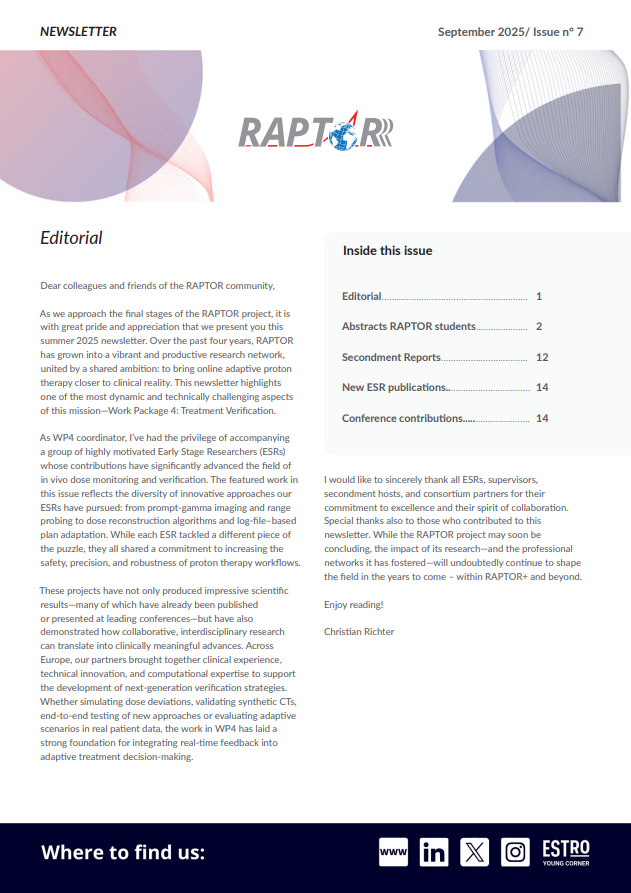E-learning platform
Raptor Consortium Knowledge Base
E-learning platform
Papers
- Generation and evaluation of anatomy-preserving virtual CT for online adaptive proton therapy
- Feasibility of Monte Carlo dropout-based uncertainty mapsto evaluate deep learning-based synthetic CTs for adaptiveproton therapy
- Potential margin reduction in prostate cancer proton therapy with prompt gamma imaging for online treatment verification
- Inter- and intrafractional 4D dose accumulation for evaluating ΔNTCP robustness in lung cancer
- Patient-specific neural networks for contour propagation in online adaptive radiotherapy
- Dosimetric comparison of autocontouring techniques for online adaptive proton therapy
- Deep learning based uncertainty prediction of deformable image registration for contour propagation and dose accumulation in online adaptive radiotherapy
- Two-channel combination methods for count-loss correction in radiation measurements at high rates and with pulsed sources
- Online adaptive planning methods for intensity-modulated radiotherapy
- Virtual 4DCT generated from 4DMRI in gated particle therapy: phantom validation and application to lung cancer patients
- Synthetic CT in Carbon Ion Radiotherapy of the Abdominal Site
- Calibration method and performance of a time‐of‐flight detector to measure absolute beam energy in proton therapy
- SyntRAD2023 Grand Challenge dataset: Generating synthetic CT for radiotherapy
- Optically stimulated luminescence dosimeters for simultaneous measurement of point dose and dose-weighted LET in an adaptive proton therapy workflow
- Dosimetric characteristics of 3D-printed and epoxy-based materials for particle therapy phantoms
- Uncertainty estimation and evaluation of deformation image registration based convolutional neural networks
- A reference-point-method-based online proton treatment plan re-optimization strategy and a novel solution to planning constraint infeasibility problem
- Multi-Institutional Experimental Validation of Online Adaptive Proton Therapy Workflows
- Repeated CT for an anthropomorphic phantom with different nasal cavity fillings
- DiffuseRT: predicting likely anatomical deformations of patients undergoing radiotherapy
- Robust optimization strategies for contour uncertainties in online adaptive radiation therapy
- Adaptive intensity modulated proton therapy using 4D robust planning: a proof-of-concept for the application of dose mimicking approach
- Generating synthetic computed tomography for radiotherapy: SynthRAD2023 challenge report
- Real-time delivered dose assessment in carbon ion therapy of moving targets
- Beyond a constant proton relative biological effectiveness: A survey of clinical and research perspectives among proton institutions in Europe and the United States.
- A phantom for 2D dose measurements in the vicinity of metal implants for photon and proton beams
- Multi-institution investigations of online daily adaptive proton strategies for head and neck cancer patients
- Modelling strategies to enable time-resolved volumetric imaging
- Evaluation of motion mitigation strategies for carbon ion therapy of abdominal tumors based on non-periodic imaging data
- Deep-learning synthetized 4DCT from 4DMRI of the abdominal site in carbon-ion radiotherapy
- Feasibility of prompt gamma verification for cone-beam computed tomography-based online adaptive proton therapy
- Instantaneous in vivo distal edge verification in intensity-modulated proton therapy by means of PET imaging
- The bone rigidity error as a simple, quantitative, and interpretable metric for patient-specific validation of deformable image registration
- Transfer learning for sCT after software reconstruction update
- Comparing methods to improve cone-beam computed tomography for dose calculations in adaptive proton therapy
- The influence of daily imaging and target margin reduction on secondary cancer risk in image-guided and adaptive proton therapy.
- First clinical implementation of a highly efficient daily online adapted proton therapy (DAPT) workflow
- Development and external multicentric validation of a deep learning-based clinical target volume segmentation model for whole-breast radiotherapy

